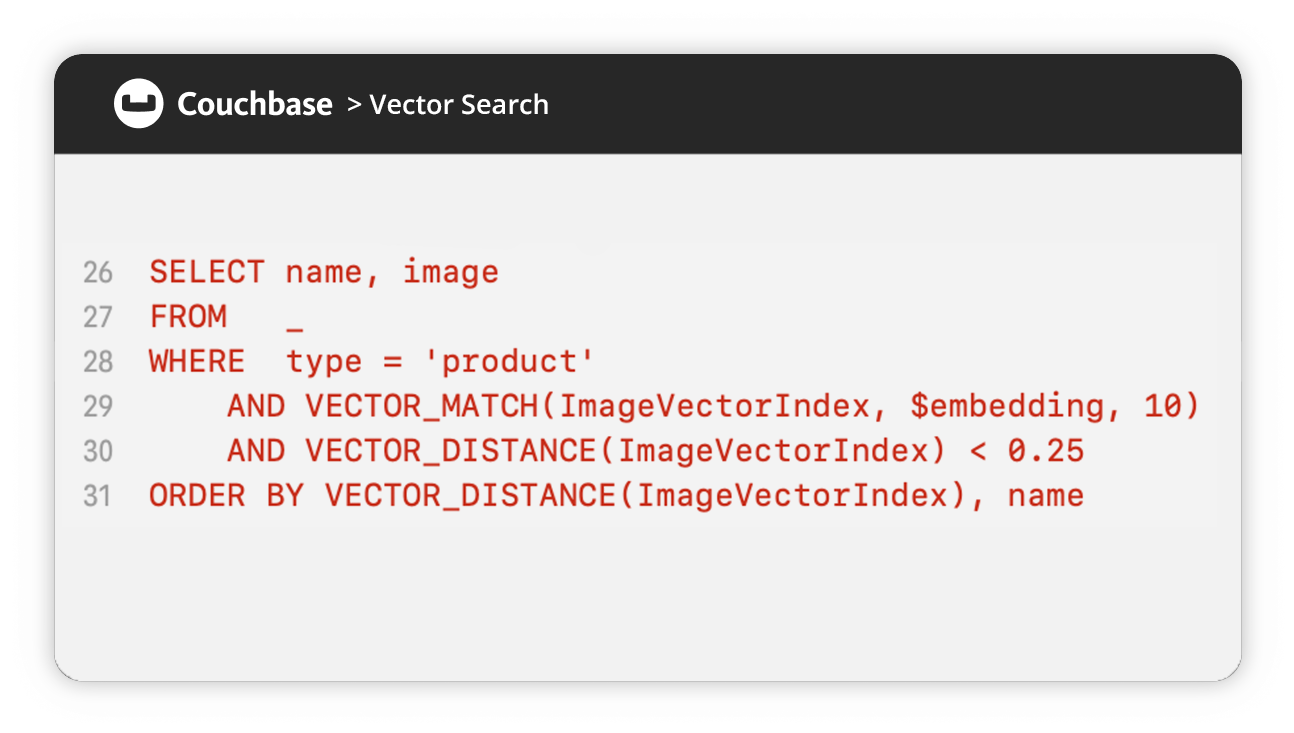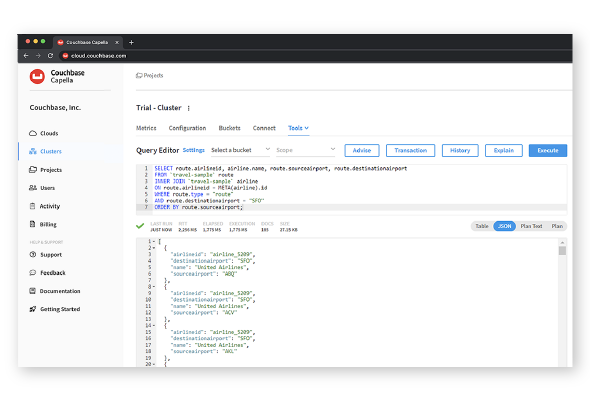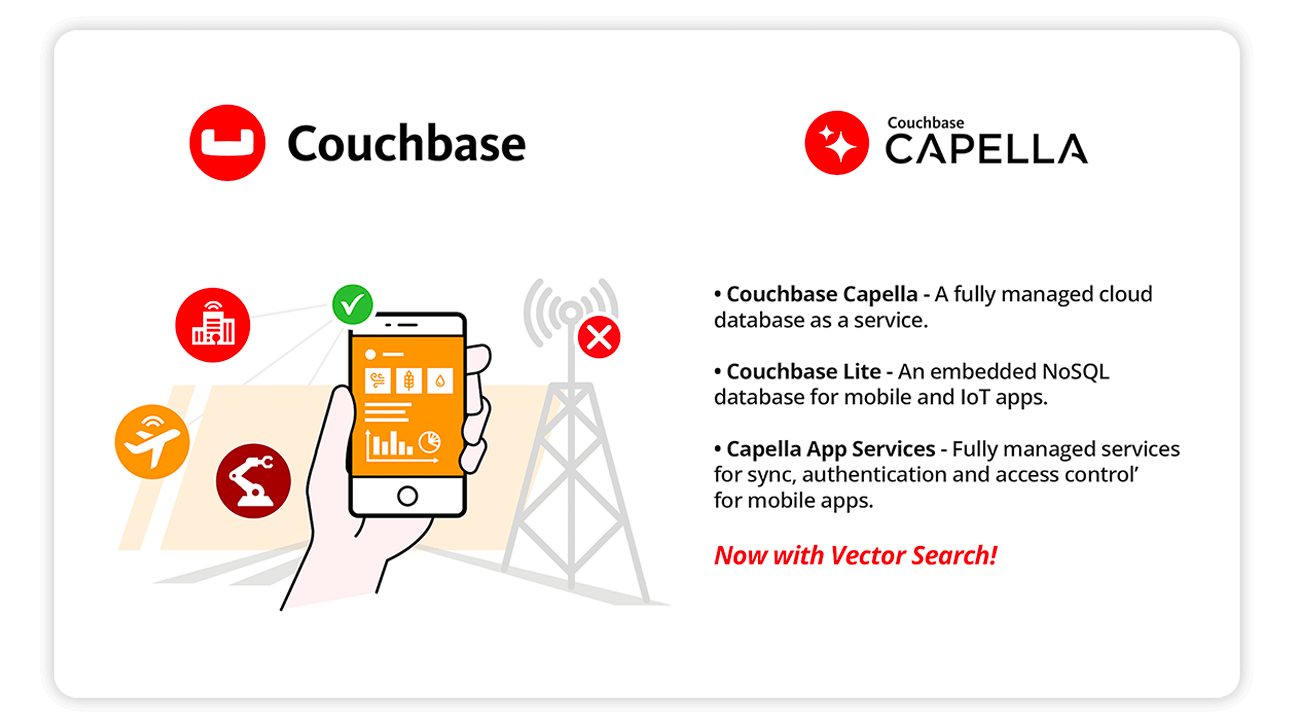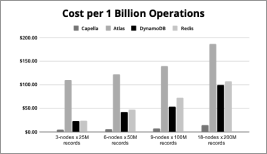CHALLENGES
Apache CouchDB vs. Couchbase
While the name is similar, CouchDB fails to deliver the same functionality and high performance as Couchbase. Customers who switch to Couchbase usually mention CouchDB’s lack of data consistency, speed, and support for development tools.
CHALLENGE #1
Ensure data consistency
CouchDB instances carry different information that must be reconciled, introducing points of failure.
CHALLENGE #2
Query capabilities and speed
CouchDB functions as a pure document store, which limits querying and slows down performance.
CHALLENGE #3
Support for development tools
CouchDB is an open source project with a rigid environment and limited support.
FEATURES
Feature set: Couchbase vs. CouchDB
- Developer agility
- Data models
- Consistency
- Replication
- Locking
- Query language
- Secondary indexes
- Notifications
- Services
- Couchbase Server
- JSON document, key-value
- Strong, including distributed ACID transactions
- Master-master
- Optimistic and pessimistic
- Yes, SQL++ (SQL for JSON)
- Yes
- Yes, database change protocol / eventing service
- Data, query, index, full-text search, analytics, eventing, backup, mobile sync
- Apache CouchDB
- JSON document, key-value
- Eventual
- Master-master by default with optional clustering for quorum writes and reads
- Optimistic with modified MVCC
- Yes, using a limited find API derived from MongoDB™
- Yes
- Yes, changes feeds
- Data, query, index
- Performance at scale
- Storage (performance)
- Integrated cache (performance)
- Managed cache (performance)
- Couchbase Server
- Append-only B-tree
- Yes
- Yes
- Apache CouchDB
- Append-only B-tree
- No
- No
- Manage with ease
- Automatic failover (management)
- Cross data center replication (management)
- Couchbase Server
- Yes
- Yes
- Apache CouchDB
- Not by default; can be configured for quorum reads
- Yes
CUSTOMERS
What customers are saying
-
"We found that the replication technology across data centers for Couchbase was superior, especially for large workloads."
Claus Moldt, CIO, FICO<1 ms response times24x365 application uptime -
“With less than half the servers, we can increase performance and gain a much better scalable architecture.”
Amir Ish-Shalom, Sr. Director of Operations, Viber15 billion call and message events/day60% reduction in total servers






